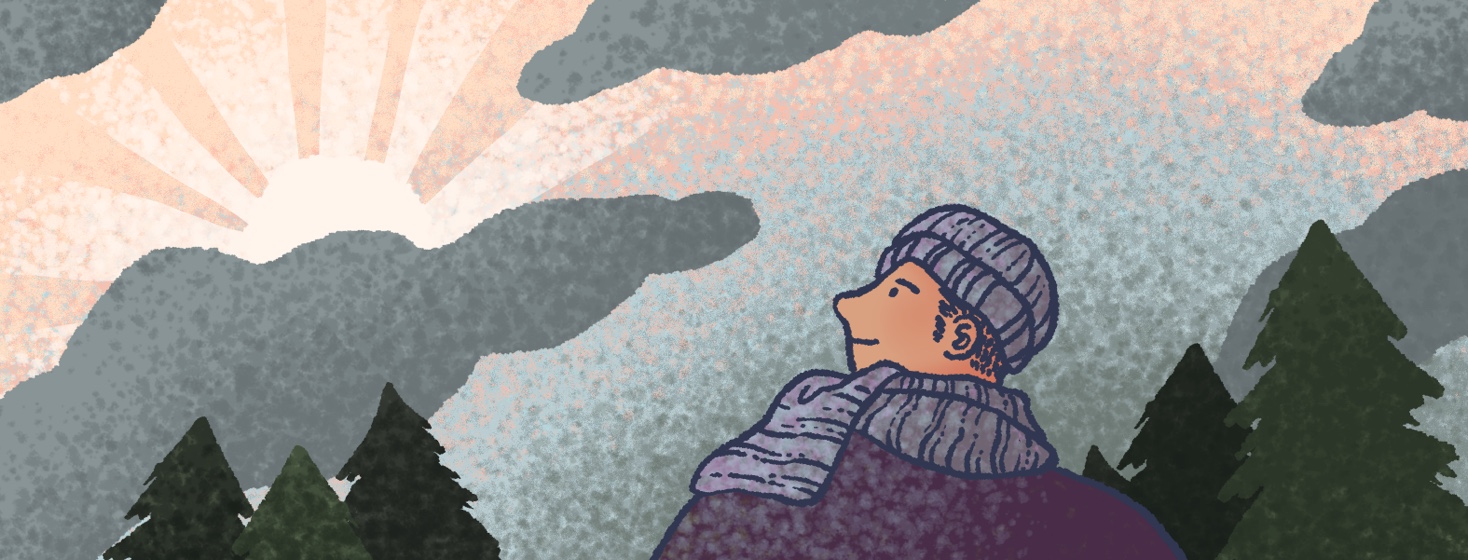Feeling SAD About Prostate Cancer?
Seasonal affective disorder (SAD) is a type of depression most often linked to changes in the seasons.
While the condition can present itself at any time of the year, most folks begin to experience the effects of SAD in the fall as the daylight hours grow shorter. Resolution typically comes with the arrival of spring and longer hours of daylight.
Changing moods
Reactions to SAD can range from feeling drained of energy and mood to troublesome bouts of depression. Today with so much uncertainty surrounding our lives due to COVID and other pressures, it is easy to find yourself stressed and filled with anxiety. And perhaps the stress level is a bit higher if you, like me, have been dealing with prostate cancer.
There is some growing evidence that now suggests men are at a higher risk for mood disorders, particularly as we age. The combination of long winter months with decreasing light levels can find many men down in the dumps.
Adjusting to life changes
If you have not noticed, men tend not to take sudden or unexpected life changes in stride. For proof, just spend time with some recently-retired or a few stay-at-home men. Ask how things are going now that many home repair projects have long been finished, or if playing golf seven days a week has lost some of its charm.
Finding support for mental health
Having been involved with prostate cancer support groups for the past eight years, I feel a bit confident in saying that based on personal experience with the men I have met, most are reluctant to admit there might be a small benefit in joining an education and support group.
And while our group also offers easy access to a psychologist, on average the men tend to be a bit hesitant in recognizing or accepting the need for therapy or medication to help them overcome a few emotional rough spots.
More time in nature
One of the more effective tools that has helped me and one I often suggest to others is, when you want to get over the "down in the dumps" feeling, that is about the right time to spend some more time out in nature.
Several years ago, an unexpected career opportunity gave me a chance to move away from a large urban environment to Milwaukee, Wisconsin, a small city on the shores of Lake Michigan. Once all the pieces came together, we purchased a home in the Lakes Region, a few miles west of the city. In addition to discovering the joys of boat ownership, the area offered many hiking trails.
It did not take long to adjust to the calming effects of living in that environment. Even on the coldest days in the middle of winter, a walk outside in the snow or simply stopping to watch steam rising on a not-yet frozen lake at dawn offered an inner sense of peace and calm.
Managing stress
My “nature walks” were a great way to decompress from the daily stress of working in a large corporate environment. Today as a prostate cancer survivor, I still find tremendous comfort in taking solo walks to help lower my stress levels and improve my overall mental outlook.
I believe that taking the time to immerse yourself in nature can and does have a powerful impact on your mental well-being.
Living with the challenges of prostate cancer at any stage is not easy. And yet this simple solution has offered me and perhaps, potentially for you, an easy way to gain some much-needed and appreciated relief.

Join the conversation